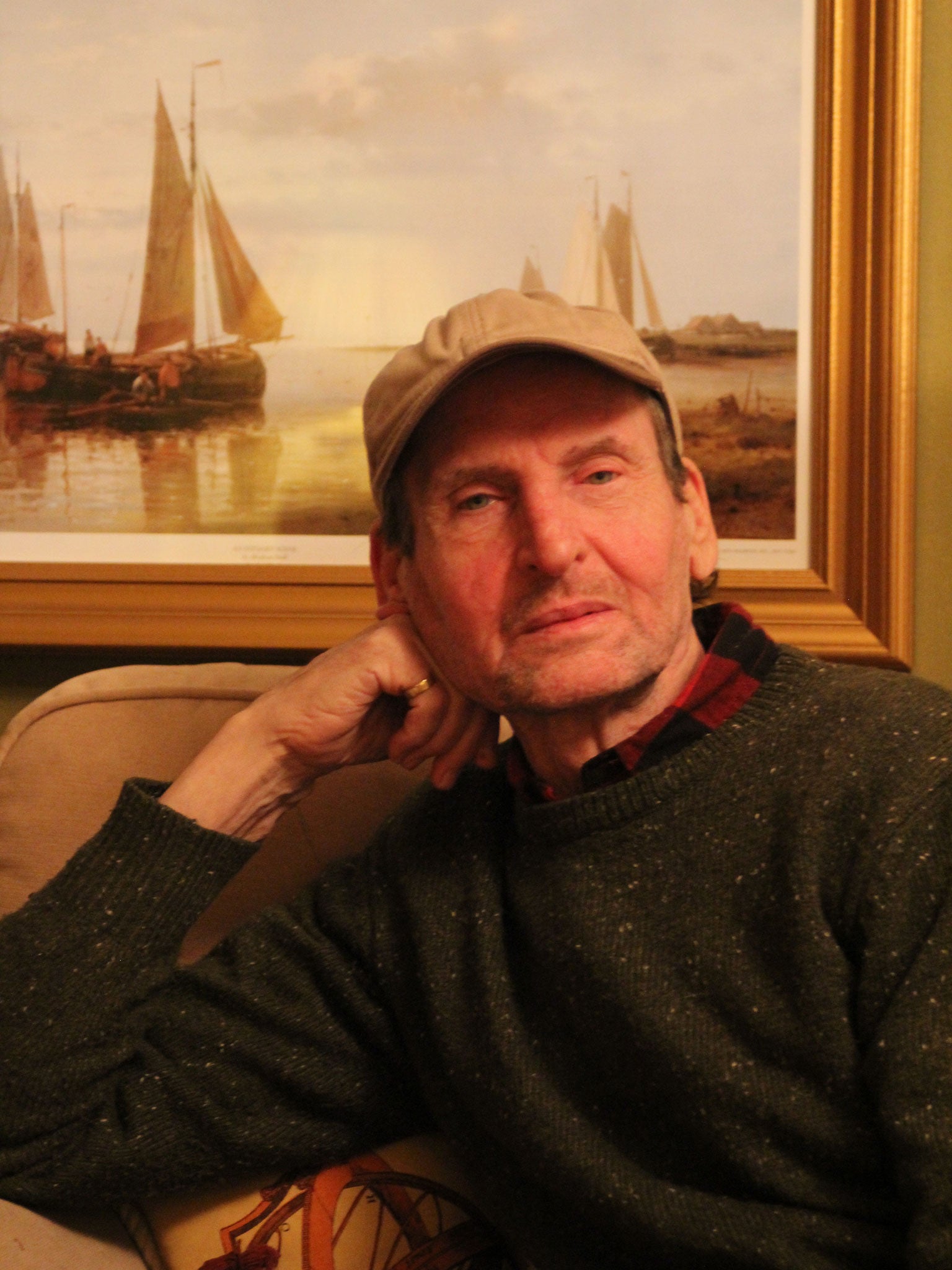The kidney patient subject to bedroom tax - even if room is used for dialysis machine
Plight of MP’s brother raises questions about fairness of controversial welfare reform

It has been 30 years since Rivers Pound moved into his specially adapted council flat in Earl’s Court, west London. The 55-year-old has been on and off dialysis since his first kidney failure at 19, and his flat was one of three in the block designed with its own dialysis room, part of a council scheme to house residents with renal problems.
Then, in April, the Coalition introduced its welfare reforms and everything changed. Although Rivers’s body was rejecting a third transplanted kidney, he was not on dialysis at that moment and so the room that housed his equipment was deemed surplus to requirements.
According to the inflexible rules of the under-occupancy policy known as the “bedroom tax”, he had to find another £120 a month for this “spare” room – or find a new home.
Too proud to accept charity, the musician decided to sell his only possession of value: a piano worth £1,500. He hoped it would cover the extra rent until he was on dialysis again, and thus free from the charge.
Growing up as one of seven children, Rivers Pound is used to being self-sufficient. As a result he didn’t want to ask his siblings for help – even though his brother is an MP. Yet his story so encapsulated the new uncompromising welfare system introduced by the Department for Work and Pensions that last week Rivers’ elder brother Stephen – the shadow minister for Northern Ireland – felt compelled to raise it in Parliament.
Without at first revealing the family connection, the MP said: “There is a young man who lives in Earl’s Court who is in total renal failure. May I tell you that this man’s spare bedroom is a dialysis unit. He has been told that he now has to pay the bedroom tax.”
It was only in his concluding remarks that Stephen Pound revealed his personal interest, saying his brother faced losing his home “for being a kidney patient”.
“[Rivers] is not happy to accept money from the family because he’s proud,” Mr Pound said. “We’ve offered to help, but to a certain extent, why should he have to ask his family? He’s desperately upset by the whole thing. His attitude has been: ‘Don’t make a fuss, I’ll work it out’.”
The powerful drugs Rivers is on to stop him rejecting his artificial kidney leave him drained. He is often too exhausted to walk. Every six months he has an operation at St Mary’s Hospital in Paddington to change a stent. He wants to work but his health often gets in the way.
“I did try and do some voluntary work a year ago, to see if I could do something when I wasn’t in hospital,” he says. “I was leading horses for riding for the disabled but after the first attempt I became very ill with a bone infection and my leg was very painful.”
On top of the failing kidney and the bone infection, he suffers from carpal tunnel syndrome so severe that he is on a waiting list for surgery. Despite the litany of problems, fitness-to-work assessor Atos has now twice declared him well enough for the workplace. “I was on incapacity benefit, but it’s income support now,” he says. “I have to go to the jobcentre because I was considered well enough to work. I’ve just been sent another 19-page form to fill out. It is the third Atos form I’ve had to complete.
“I tell them I’m waiting for a transplant and not well. The problem is some days I’m OK and others I’m really not. I’m so depleted of energy a lot of the time and some days I just know I won’t be great that day. I have to go to the jobcentre for an interview and the last few times I’ve had to do it over the phone because I haven’t been well enough to go.”
Though he is not currently using his dialysis machine, he knows he soon will be. “I’m not using it at the minute because I had a transplant in 1995, but no transplant lasts forever and I was on dialysis for 20 years waiting for this one. It started failing about two or three years ago and it’s petering out.
“In the last few months I’ve been having tests to see if I can go back on the list for another transplant. But having waited at least 20 years last time I don’t expect a kidney to just arrive – and in the meantime I’ll need dialysis.
“They don’t look ahead or at the practicalities. It’s far cheaper for me to use dialysis at home than in a hospital taking up a bed. It’s a false economy, surely.”
Stephen Pound, the Labour member for Ealing North, feels outraged on his younger brother’s behalf. In an interview with The Independent, he criticises the inflexibility of the policy.
“It’s absolutely heartbreaking and it’s the lack of any local ability to look at this humanely that worries me,” he adds. “There’s no wriggle room at all. At the moment they just say that if he pays the extra money, he can stay there.”
A DWP spokesperson said: "Paying for housing benefit for spare rooms is simply unaffordable, but we've been clear from the outset that we would support people who might find the changes difficult. This is why we've given councils 190m in extra funding, some of which has been specifically targeted at disabled people living in adapted homes. People should speak to their council about whether they are eligible for this help."
Join our commenting forum
Join thought-provoking conversations, follow other Independent readers and see their replies
Comments